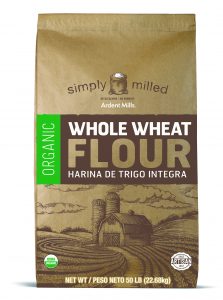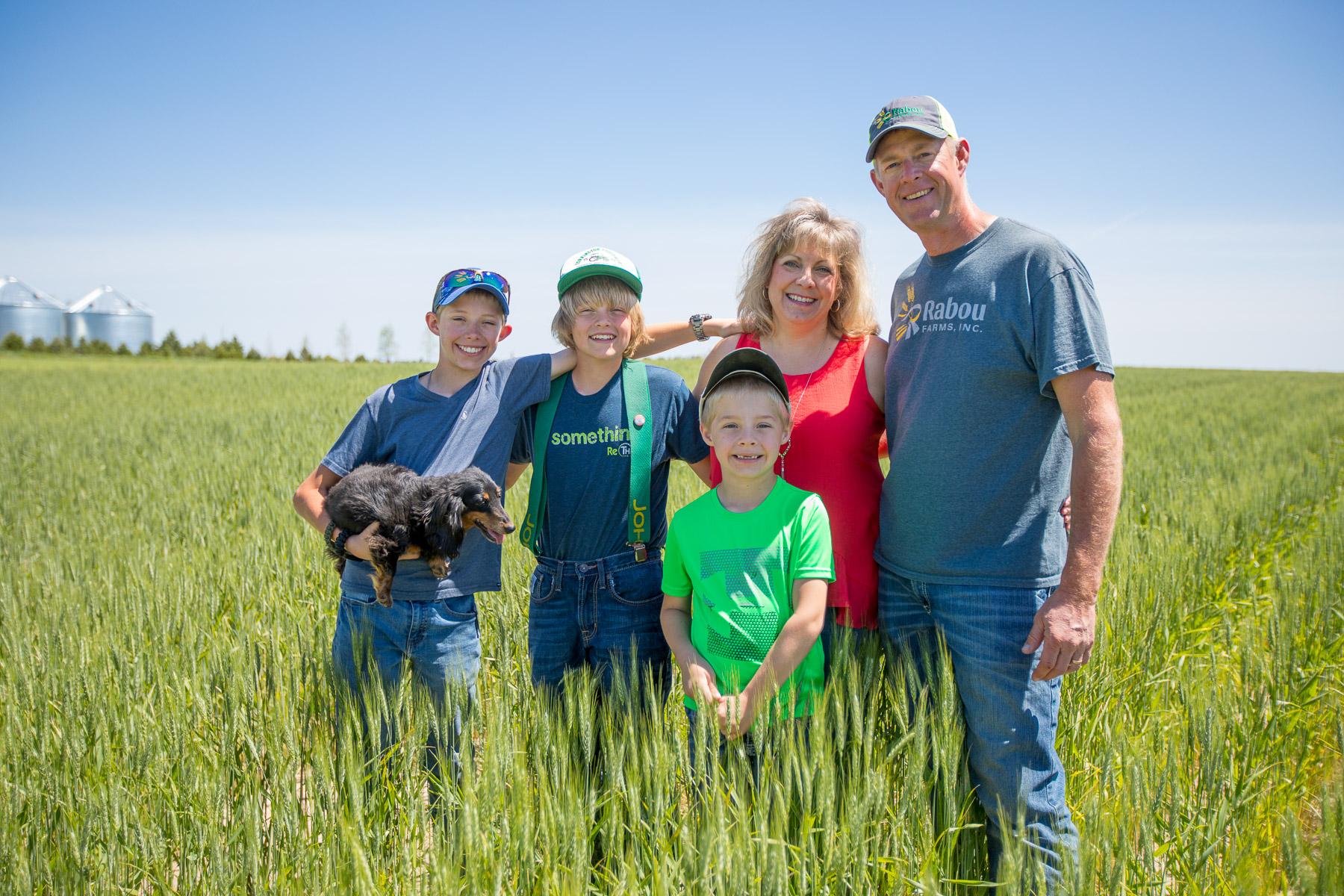By Shrene White, general manager, and Don Trouba, senior director, Go-to Market, The Annex by Ardent Mills, Denver, Colorado
According to the U.S. Department of Agriculture, organic food has become the fourth largest food commodity in the United States. While more consumers are choosing organic, less than one percent of American farms had organic certification as of 2017. In early 2016, we at Ardent Mills recognized the need to meet growing demand for organic foods, and in turn launched our Organic Initiative 2019 with the stated goal of doubling harvested organic wheat acres by the completion of the 2019 crop year. Over this period of time, we worked directly with farmers and continue to assist in their transition to organic. We also made significant facility investments to expand our organic footprint. In the end, we want to ensure an organic supply our customers can always count on.
Grass roots beginnings
We began with a series of farmer meetings in North Dakota, Colorado and Idaho to identify barriers to entry into organic production and opportunities for farmers wishing to participate in the organic space. We heard concerns about organic education, changing farm practices, disease and pest control, crop rotations, and cover crops. From the beginning, Ardent Mills has been committed to addressing these concerns and to helping farmers connect with the organic supply chain in ways that would help them be successful. Since 2016, we’ve expanded our sourcing from a single organic wheat program in Colorado to multiple programs in almost every state west of the Mississippi.
Supporting the organic transition
One key to success in increasing harvested organic wheat acres was formalizing a Transitional Certification Assistance Program (TCAP) to help farmers transition to organic. The program offers technical education, support, connections, and an outlet for farmers selling transitional wheat. In many situations, Ardent Mills buys transitional wheat from farmers at a price above conventional wheat to support them during the three-year transition to organic. The transitional wheat from these crops is not organic. However, it is grown using organic farming practices required by the USDA and other governing agencies. After three years of growing under these conditions, the land and crops grown on it can be certified as organic. The hard work we put into our TCAP program meant that, by 2019, many farmers who first joined were able to complete the transition to organic. Now, Ardent Mills has started milling all-purpose flour made from transitional wheat.
We recently began working with FoodMaven, a Colorado-based distributor that serves as an online marketplace. They distribute impact ingredients, which for them can be local, imperfect or oversupplied. Ardent Mills and FoodMaven are both excited about transitional wheat flour as an ingredient because of its support for farmers during the transition to organic. This collaboration will provide restaurants, bakeries and other foodservice establishments access to this unique flour. Many consumers are looking for ways to make a difference through their purchases, and through our collaboration with FoodMaven, they’ll now have the ability to support farmers on their journey to organic.
Measuring success

Ardent Mills’ Simply Milled Organic Whole Wheat Flour
Since the launch of our Organic Initiative, we’ve expanded our organic footprint in terms of growing, storing, and processing organic flour and grains. Ardent Mills expanded from two organic milling locations to 11. We’ve added one organic grain elevator, a warehouse, and have incorporated more organic ingredients into our two mix plants and bakery. In 2019, we sold six times more organic flour than we did in 2016, which tells us we are making an impact in helping farmers meet the demand of our customers.
Our work with organic growers in Colorado, Idaho, Montana, Wyoming, Texas, Michigan, Nebraska, Kansas, Washington and Saskatchewan, Canada, has helped assure a consistent supply of organic wheat to our customers, which enables them to invest in new product lines and convert to more organic product development. We also develop and bake organic bread for store-branded programs at Innovative Bakery Resources (IBR), a division of Ardent Mills dedicated to the art and science of artisanal bread making at scale in our state-of-the-art bakery in Tualatin, Oregon.
In late 2019, we added new capabilities to our historic Denver mill, allowing us to expand organic processing beyond wheat. We’re now cleaning, de-hulling, color sorting, and packing grain berries, including organic barley and organic spelt, for the foodservice and food manufacturer markets.>
Forging relationships
When we decided to expand our footprint in the organic space, it was vital for us to understand the needs of the market. An important part of our learning curve was to join groups like the U.S. Organic Grain Collaboration, Naturally Boulder and the Organic Trade Association (OTA). These groups are a vital part of Ardent Mills’ organic network, and we plan to participate in the OTA’s “GRO Organic,” a new effort to advance a voluntary, industry-invested organic research, promotion and education “check-off”-like program. GRO stands for “Generate Results and Opportunity for Organic,” and is a private-sector initiative that will be collaboratively designed and implemented by organic stakeholders. Trade organization partnerships like these prove that a large company can fit into this niche space.
Looking ahead
As we move into a new decade, we’ve expanded our organic portfolio to include Whole Wheat, All-Purpose, Bread, Premium Bakers, and Pastry flour. We also offer organic ancient grains, durum, cracked wheat, spelt, triticale, quinoa, and bakery mixes and blends. Going forward, we will continue to focus our efforts on developing the right organic varieties and breeding programs to ensure high quality, consistent, organic grain ingredients to give consumers choice and access.





